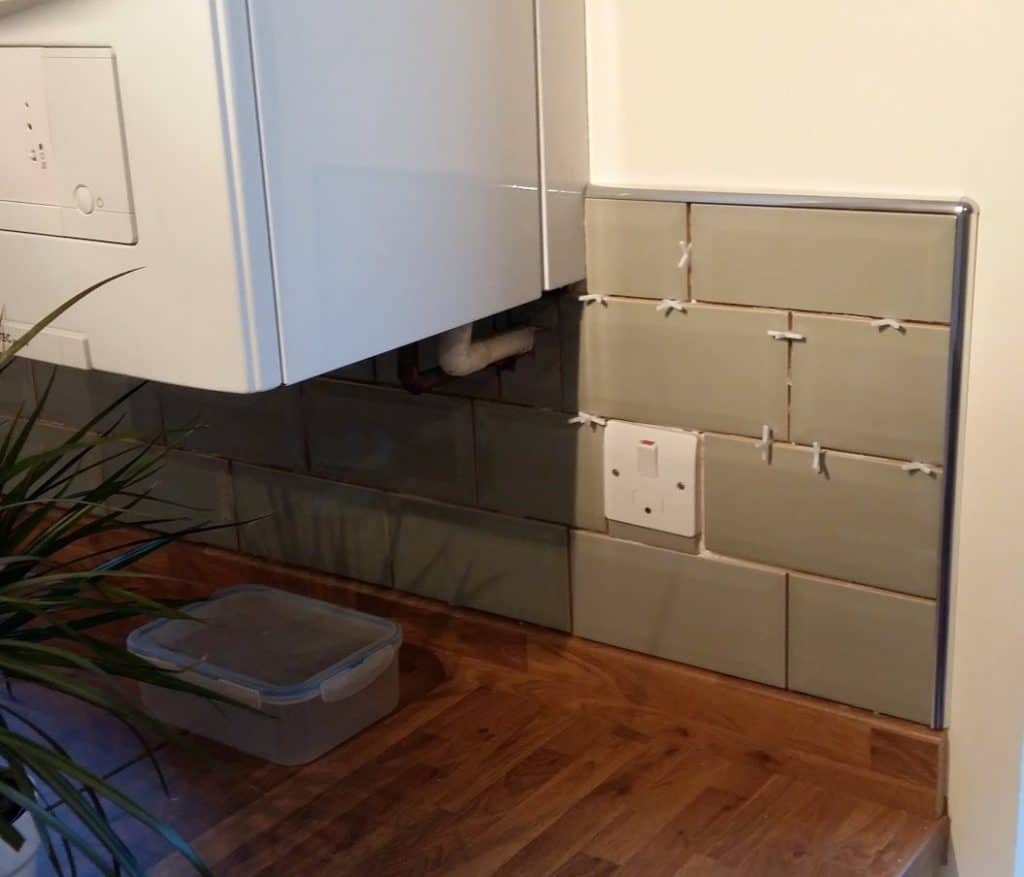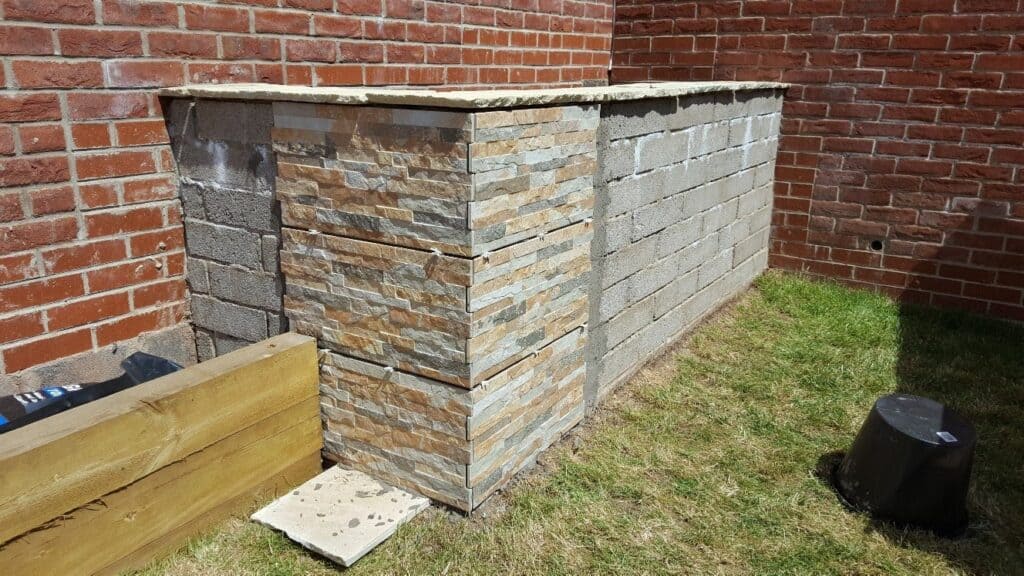A very common question people ask when it comes to basement flooring is what kind of tile is best for basement flooring. With so many options to choose from, it is natural to be confused. You will find some who say that any type of flooring will work in a basement, provided that is waterproof.
At the same time, there are some schools of thought that believe that there are some specific flooring solutions that work better than others. This is because basements have a way of being much hotter than the rest of the house during summers and cooler in the winter.
In our experience, ceramic tiles are the best choice for basement flooring. Not only do they offer a myriad of color schemes and designs to choose from, if installed correctly, these tiles can insulate the basement, along with being water/dampness proof. However, that is not to say that other flooring solutions don’t work. Let us consider some of the best types of tiles for basements that you can go with.
Choosing the Best Type of Tile for Basement Floors

When it comes to basement floors, there are several considerations to make before pointing a finger at the ‘best’ option. Here are some questions that you should consider asking yourself when choosing;
- Are you going to go into the basement bare-footed?
- How warm does the basement become? This may severely limit the flooring choice(s) you have
- Is the basement damp? Is there any moisture?
- Is your house in a flood-prone area?
- Do you find that your pipes are often leaking into the basement?
- What is the subfloor you’re working with? Is it concrete or plywood? Plywood can’t handle as much weight as concrete can, and it might have issues with damp and rot, further limiting your options
- Is the sub-floor level?
- Is the sub-floor smooth or does it need to be smoothed out?
Of all the flooring options you can go with, try to avoid hardwood and laminate flooring (fiberboard core). If you must use wood, make sure that it has been treated. This is because wood absorbs moisture pretty easily, and warps, ultimately losing its integrity.
There are also other methods to protect your basement flooring – even if it’s wood. These include installing vapor barriers, using epoxy, sheet plastic, vinyl, and more. We will discuss these in detail further into the article. You can also choose to raise the floor, adding a waterproof subfloor.
This will give you some room between the concrete and your floor, which will act as insulation and prevent your house from warming up. There are also some plastic barriers that are attached underneath carpets that can be used – which is a favorite of many DIY-ers.
Having said that, you simply can’t beat the finesse, insulation, and waterproofing that ceramic tiles offer.
The Best Type of Tile for Basement Floor
Ceramic Tiles

Easily considered to be the best option for basement flooring, ceramic tiles offer a wide range of colors, styles, and designs for you to choose from. The tiles don’t just look pretty, they are also water/damp proof. They apply directly onto the concrete, thus giving you an insulated floor that is free of cracks (and is hopefully level) – and one that that will last you for at least 15 to 20 years if taken care of.
On average, installing a ceramic tile floor in your basement should cost you somewhere between $0.50 and $25 per square foot. Of course, there are some very expensive options that you can go with as well.
This is actually a very affordable flooring solution – especially if you’re doing it yourself. Just make sure you have the right-sized trowel, the right adhesive, grout, and a general know-how of what you’re doing. If you find that the concrete sub-floor of your basement is brittle or has huge cracks and divots in it, you should consider laying a new sub-floor on top of the old one, or at least repairing it.
Give your plywood subfloor some support before you choose to lay tiles on top of it.
Vinyl Tile/Sheet Flooring
Vinyl tiles are exactly what the name suggests; these are sheets of vinyl that are placed directly on top of concrete. These are highly preferred these days, considering that the utility they offer match that of tiles, the beauty they offer is that of high-end material, and the cushioning they offer is also fairly decent.
Compare the same to the price; this is a very inexpensive option to consider. Whether you’re looking to mimic the outlook of a ceramic floor or even a wooden one, this is an affordable alternative. Vinyl sheets will cost you somewhere between $0.75 and $4 per square foot. We recommend you buy a large roll, which should be enough for the basement floor itself, and then some.
However, just keep in mind that you will have to cut the same into size, and the installation process can be a little challenging. It is recommended that vinyl tiles be applied directly onto the concrete or plywood subfloor. You might have to use some more elbow grease to level the floor for installing these, though.
Marmoleum
Marmoleum tiles are quickly gaining popularity because of the minimalistic outlook they offer; not to mention the overall sturdiness you’ll get. These are a relatively expensive option to go with, but are well worth the investment if you ask us.
These ‘tiles’ are made from:
- Linseed oil extracted from flax
- Limestone
- Wood flour and
- Jute
For those of you who are into the ‘green initiative’, marmoleum is the way to go. These are available in the form of tiles and sheets, and can cost anywhere between $3.75 and $6 per square foot. What you’ll be getting would be extremely beautiful and very durable. From water to grime, these tiles can easily be washed off.
When it comes to installation, we recommend going with square tiles, since they are much more forgiving in terms of the installation procedure. For increased protection, we recommend you add a vapor barrier when installing.
Porcelain Tiles

Porcelain tiles are relatively more dense compared to ceramic tiles and therefore can be a great option for basement floors. These tiles need to be installed directly on the subfloor, are waterproof, and can last much longer than any other tile on this list.
Not only that, these tiles can mimic any style you’d like. The glaze on top makes them resistant to water, but they do tend to get slippery when wet – even more so than other types of tiles. If you have plywood subflooring, we recommend you avoid porcelain tiles.
On average, installing a porcelain tile floor can cost anywhere between $0.50 and $35 per square foot.
Oh, and… be ready to get cold feet during the winters, since porcelain tiles tend to be much cooler than their ceramic cousins.
Alternate Basement Flooring Solutions
When it comes to basement flooring, while tiling is perhaps the best route you can take, it isn’t the only one. If your budget doesn’t allow for the above solutions, here are some alternatives that you can adopt as well for almost similar results. Of course, nothing can beat tiling your basement floor, but if you’re looking for the next best thing, these are it.
Paint
Painting and applying the proper finish to your basement floor can perhaps be the least expensive solution you can go with. You can paint the basement walls and floor to get a relatively smoother finish if you’re going to use your basement as a workshop or a store room.
However, ordinary paint won’t cut it – especially if you have a damp or warm basement. On average, considering the primer and oil-based paint, the cost involved can be between $0.57 and $0.99 per square foot.
Just remember to choose a paint that is suitable for concrete floor paint and let it dry completely. Basement paints usually take a few more hours (usually 24 to 32 more) to dry up.
Epoxy Coating

If you aren’t planning on going in the basement barefoot, you can use epoxy to eliminate any water and heat issues that may arise, without having to install a whole new floor. You can find epoxy in a variety of colors – including iridescent colors! Epoxy is very easy to apply since it’s a simple matter of mixing it in the right proportion with a hardener, pouring it, and letting it dry.
DIY kits usually cost around $100 to $140, and should be enough to cover an average-sized basement. We recommend that you mix a little bit of sand into the mix if you are planning to lay a floor with it to add a little texture and make sure you don’t slip when it is wet. When the epoxy is curing, we recommend staying away and opening a window for ventilation.
Engineered Wood Flooring
Since wood isn’t a viable solution for basement floors, an alternative you can go with is engineered wood. It isn’t exactly wood, nor is it plastic, but is something in between. It gives you the outlook and beauty of wood but without the moisture issues that it comes with.
On average, engineered wood flooring should cost you about $4 to $7 per square foot.
Rubber Flooring
You can also go with rubber flooring, available in different colors, to insulate your basement. You can find them in the form of sheets or tiles (with interlocking edges). You need to use some sort of adhesive to apply the same.
Rubber flooring has some of the best cushioning out there – even better than what carpeting offers. You must have seen these used in a restaurant’s play area or even a friend’s house (children’s room). If you choose to buy rubber flooring tiles, it would cost you $3 to $8 per square foot. If, however, you buy sheets or rolls, the cost will come down to $1 to $5 per square foot.
Concrete also offers a very good alternative for basement floors. You can use stencils to design the concrete in any shape you want, even brick, if you’d like. However, concrete flooring offers no cushioning and therefore requires you to wear some footwear.
